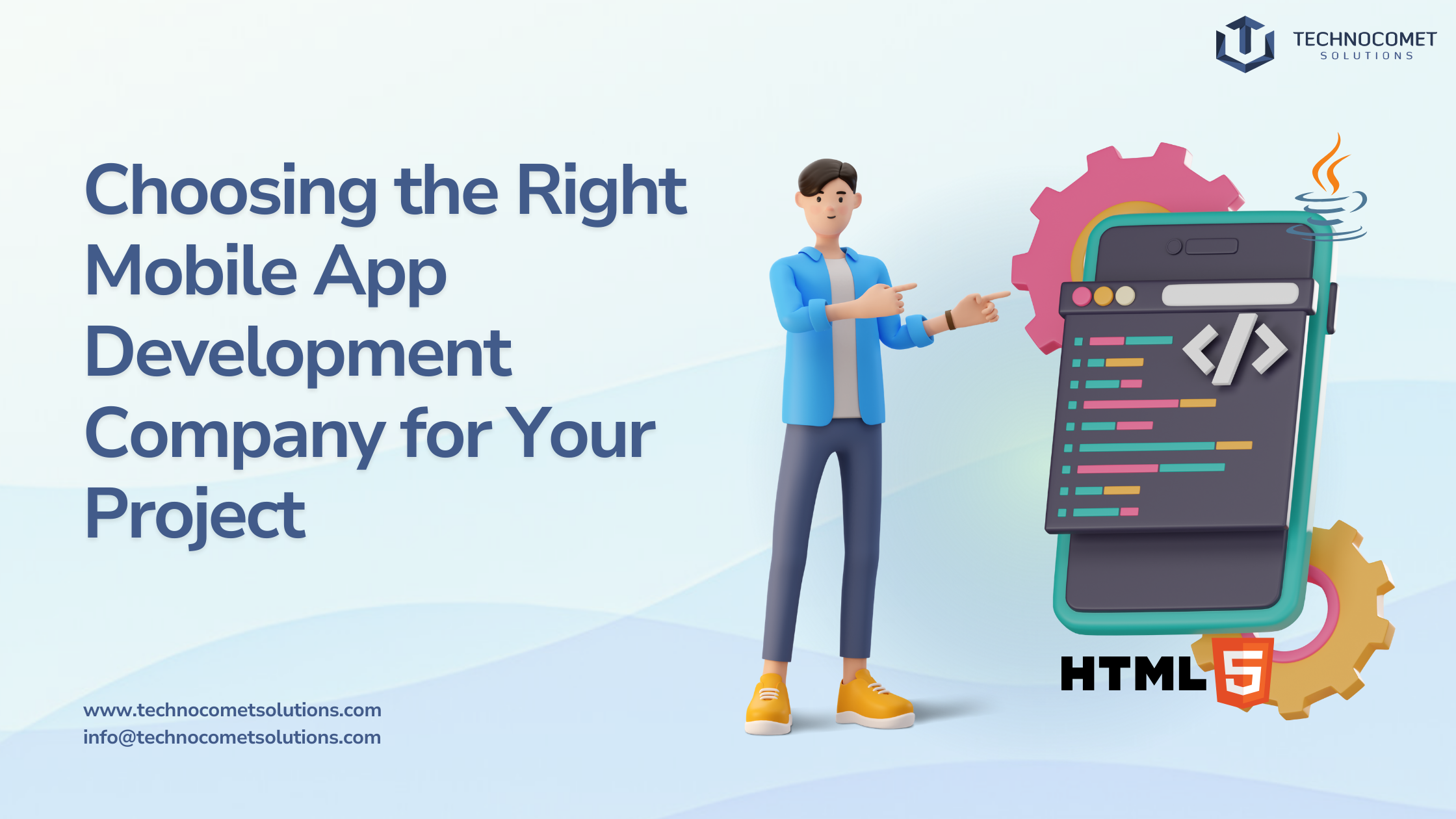Choosing the right mobile app development company can significantly influence the success of your project. A well-selected partner not only brings technical expertise but also aligns with your business goals, ensuring that the final product meets user expectations and drives engagement. Conversely, a poor choice can lead to delays, budget overruns, and a subpar app that fails to resonate with users. It’s essential to recognize that the development process is collaborative, requiring synergy between your vision and the developer’s capabilities. Ultimately, this decision sets the foundation for your app’s future performance and impact.
Before you begin your search for a mobile app development company, it’s crucial to define the scope of your project. Consider what features are essential for your app, which platforms (iOS, Android, or both) you want to target, and who your ideal users are. This clarity will guide your discussions with potential partners. Additionally, understanding your target audience will help you tailor the app’s functionality and design to meet their specific needs. A well-defined scope also aids in setting realistic timelines and budgets.
Establish clear goals for what you want to achieve with your app. Whether it’s increasing sales, improving customer service, or building brand loyalty, having specific objectives will help you communicate effectively with the mobile app development company you choose. Setting measurable milestones can also help keep the project on track and ensure that everyone involved understands what success looks like. This proactive approach minimizes misunderstandings and aligns all stakeholders toward common objectives.
Start by researching mobile app development company that have a strong reputation in the industry. Look for firms with positive reviews, a solid portfolio of past projects, and case studies that demonstrate their expertise. Online platforms like Clutch or GoodFirms can provide valuable insights into client satisfaction and project outcomes. Additionally, consider seeking recommendations from industry peers who have successfully launched apps.
When evaluating potential partners, ask about their experience with projects similar to yours. Inquire about their development process, team structure, and how they handle challenges. Reviewing their portfolio will give you insights into their design capabilities and technical skills. Additionally, consider asking about their approach to user testing and feedback integration during the development process. This information can reveal how adaptable they are in responding to evolving project requirements.
Different apps require different technical skills. Ensure that the mobile app development company you choose has expertise in the platforms you are targeting. For instance, if you’re looking to develop an iOS app, you should be proficient in Swift or Objective-C. Understanding their familiarity with platform-specific guidelines will also ensure that your app adheres to best practices for user experience. A company with cross-platform capabilities may offer additional flexibility for future updates.
Beyond development, consider what additional services the company offers. UI/UX design is critical for user satisfaction; post-launch support ensures that your app remains functional and relevant over time. A comprehensive service offering can save you time and money in the long run. Moreover, inquire about their approach to analytics; understanding user behavior can inform future updates and enhancements. This holistic view ensures that all aspects of your app’s lifecycle are covered.
Effective communication is vital for project success. Ensure that the mobile app development company prioritizes regular updates and feedback sessions throughout the development process. Establishing a communication plan at the outset can help mitigate misunderstandings later on. Regular check-ins also foster transparency and trust between both parties. This ongoing dialogue allows for timely adjustments based on feedback or changing requirements.
A collaborative approach fosters innovation and problem-solving. Establish clear channels for communication between your team and the developers to ensure everyone is aligned on project goals. Encourage open dialogue about challenges as they arise; this proactive approach can lead to quicker resolutions and better outcomes. Building a rapport with your development team can also lead to more creative solutions tailored to your specific needs.
Understanding the cost structure of mobile app development is essential for setting a realistic budget. Different companies have varying pricing models—some charge hourly rates while others offer fixed-price contracts. It’s important to clarify what is included in these costs upfront to avoid hidden fees later on. Additionally, consider allocating some budget for unforeseen expenses that may arise during development; this flexibility can be crucial for keeping the project on track.
Reviewing client testimonials and case studies can provide valuable insights into a company’s capabilities. Look for evidence of successful projects that align with your needs. Pay attention not just to the final product but also to how challenges were handled during development; this can indicate their problem-solving abilities. Such analyses will help you gauge whether they have experience relevant to your specific industry or niche.
Don’t hesitate to ask for references from previous clients. Speaking directly with past customers can give you confidence in your choice of a mobile app development company. Inquire about their overall experience working with the company—this includes communication style, adherence to timelines, and post-launch support. Gathering diverse perspectives will give you a well-rounded view of what it’s like to work with them.
Post-launch support is crucial for maintaining your app’s performance over time. A good mobile app development company will offer ongoing maintenance services to address bugs and implement updates as needed. Regular performance evaluations can help identify areas for improvement before they become larger issues; this proactive maintenance approach is essential for user retention.
Regular updates not only fix issues but also enhance the user experience by adding new features based on user feedback. This adaptability can significantly extend your app’s lifespan in a competitive market. Furthermore, engaging users through updates keeps them interested in your app long after its initial launch; this ongoing relationship fosters brand loyalty among users.
As technology evolves, so too should your mobile app. Choose a mobile app development company that prioritizes scalability and flexibility in their designs to accommodate future growth or changes in technology. This foresight will allow your application to adapt seamlessly as user needs change or as new platforms emerge; it ensures that you’re not left behind as trends evolve.
A knowledgeable partner will keep you informed about emerging trends in mobile technology, ensuring that your app remains relevant as user preferences shift over time. They should also be proactive in suggesting improvements based on industry developments; this kind of partnership fosters innovation within your business model. Such adaptability is key not just for survival but also for thriving in an ever-changing digital landscape.
In summary, selecting the right mobile app development company is crucial for the success of your mobile application project. By understanding your needs, conducting thorough research on potential partners, assessing their technical expertise, ensuring effective communication, managing budgets wisely, reviewing client testimonials, planning for post-launch support, and considering future scalability, you can make an informed choice that sets your project up for success. Investing time upfront in these considerations will pay off significantly as you develop an application that not only meets but exceeds user expectations—ultimately leading to long-term business success.









